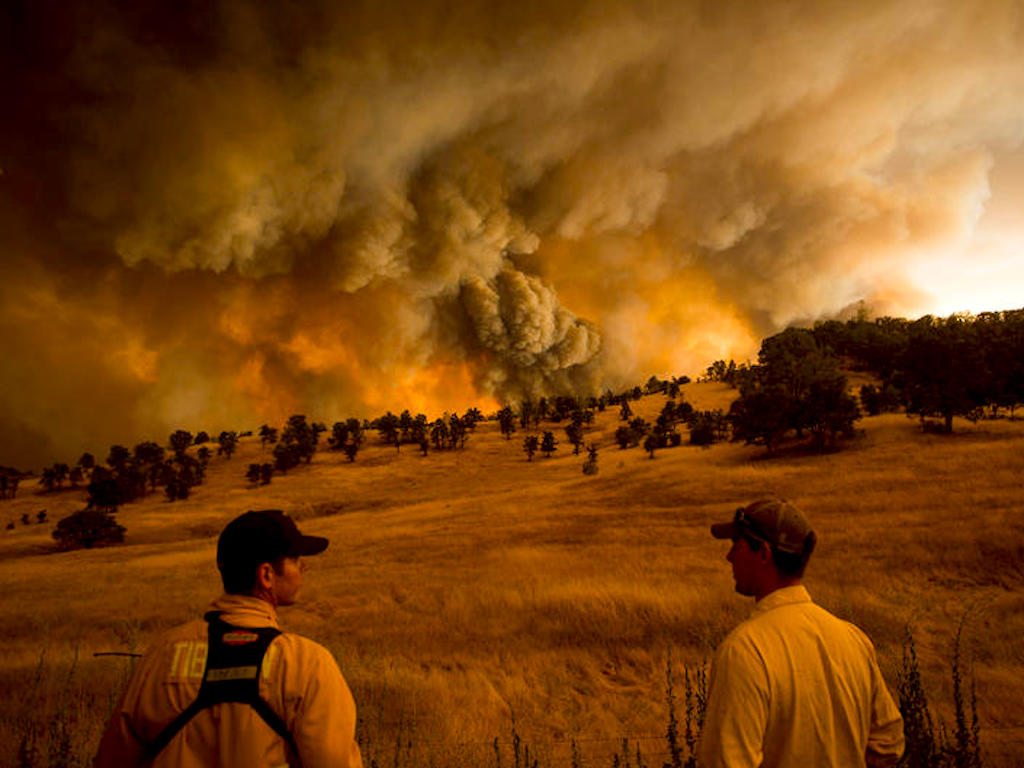3 Mins Read
Over 200 of the world’s leading scientists warned on Wednesday that it is looking increasingly likely that the world will face a number of overlapping climate-induced crises, which would tip the planet into a “global systemic collapse”. From extreme heatwaves to drought, dwindling life-sustaining ecosystems and food insecurity, we are nearing a scenario of the complete end of human civilisation altogether. This latest analysis, which is a part of Future Earth’s 2020 report, isn’t the first time scientists have sounded the alarm, and repeated calls are indicating that the world has absolutely no time to lose.
In a recent survey conducted by international research organisation Future Earth as a part of their new 2020 Our Future On Earth report, 222 of the world’s leading scientists across 52 countries agreed that five global-scale risks are looking increasingly likely, and will interact to leave behind a massive impact on life on earth. The highlighted environmental disasters include the climate crisis, extreme weather events, the decline of ecosystems, food insecurity and dwindling freshwater supply. Altogether, these five concerns have the “potential to impact and amplify one another in ways that might cascade to create a global system collapse,” the authors of the report said.
What scientists are referring to is a combination of climate-induced events, which can lead to a cycle of intensified environmental problems. Extreme heatwaves, for instance, will speed up the rate of global heating and release more greenhouse gases by intensifying the frequency of wildfires, water shortages and food scarcity. On the other hand, biodiversity loss, which is also fuelled in part by deliberate deforestation and climate-driven wildfires like we have seen raging in Australia, works to weaken the capacity of natural ecosystems to cope with climate extremes, as well as threatening crop yields and therefore food supply.
“Despite this ubiquity of connections, many scientists and policymakers are embedded in institutions that are used to thinking and acting on isolated risks, one at a time. This needs to change to thinking about risks as connected,” the report stated.
The latest warnings about the potential synergistic interplay and feedback loops between various climate events and disasters comes as the world continues to struggle to cap carbon dioxide emissions, mostly driven by the rampant fossil fuel industry. Although business and world leaders all agreed that climate-related risks must be prioritised in this year’s World Economic Forum (WEF) annual risks report, corporate interests have in large part refused to put an end to the financing of the dirtiest sources of energy in the world. Divestment has begun taking off in some North American and European countries, but major multinational banks such as Morgan Stanley have shied away from any heavy-handed commitment to stop loans and investment and loans to the most planet-damaging projects.
When it comes to the devastating impact that the current climate emergency will bring to the world, Asia will be disproportionately affected. A study conducted by Climate Central in October last year found that by 2050, 300 million people will be experiencing severe annual coastal flooding, with over two-thirds of the vulnerable tropical coastal populations located in Asia. Major cities in the region will also find themselves in flood zones, with Hong Kong, Bangkok, Mumbai and Shanghai among those named in the report.
The repeated alarm from scientists and experts is clear: we can no longer wait for action. In order to avoid a scenario of global collapse, world business leaders, governments and individuals must take collective action. From an immediate end to fossil fuels to empowering women to combat climate threats, planting trees to offset carbon emissions, reducing our everyday footprint through individual plant-based choices or investing trillions into building climate resilient infrastructure, efforts must start right now.
“As the scientific advisors for this survey, we call on the world’s academics, business leaders, and policymakers to pay urgent attention to these five global risks, and to ensure that they are treated as interacting systems, rather than addressed one at a time, in isolation,” concluded the hundreds of scientists involved in the report.
Lead image courtesy of Noah Berger / EPA.




